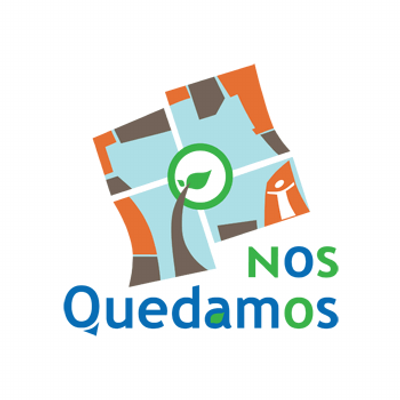Quedar o quedarse
El verbo quedar o quedarse puede causar
algunas confusiones, es un verbo que significa muchas cosas según el contexto.
Este verbo es muy usado en español por lo que es muy importante aprender a
usarlo correctamente. Vamos a ver algunos ejemplos.
QUEDAR / TO REMAIN / O MEET
1.
Uno
de los usos más comunes es cuando significa hacer una cita:
“Juan y yo quedamos a las 10:00 para desayunar”
“-Lo siento, no podré ir a la fiesta porque quedé con mis compañeros de hacer una
trabajo de la escuela”
Entonces, para hacer una cita podemos
también preguntar:
¿Dónde quedamos mañana? O ¿A qué hora quedamos?
2.
Ponerse
de acuerdo con algo, convenir algo:
“Quedamos
en llevar la piñata para el cumpleaños de nuestro sobrino”
“Los vecinos quedaron en limpiar todos los días las calles de la colonia”
“¿En qué quedamos?” (una pregunta muy común)
Si observamos bien, ambos casos hablan
de “hacer un acuerdo”
Incluso, en algunas partes de México, si
dos muchachos tienen un interés romántico entre ellos, se les dice “Los
quedantes” porque están “poniéndose de acuerdo” para ser novios o casarse.
3.
Quedar también sirve para señalar
que algo se terminó o se agotó, por ejemplo:
“No queda
fruta en el refrigerador, debemos ir al supermercado”
“Ayer en la fiesta, no quedó nada de pastel, les encantó a los
niños”
“No queda
gente buena en el mundo” (significa que no hay gente buena)
 |
| We didn't know what might have happened. |
QUEDARSE
1.
Quedarse como sinónimo de
“permanecer”, es el significado más usado de este verbo reflexivo.
“Este fin de semana me quedé en mi casa todo el día”
“Cuando viaje a Oaxaca, me quedaré en casa de un amigo por unos
días”
“Nos quedamos hasta las 10 en el restaurante”
2.
Expresa
el resultado de un cambio:
“Después de comer, él se queda dormido, todos los días”
“Ella se quedó embarazada de su primer hijo en 1994”
3.
Quedarse con algo, adueñarse de algo,
es decir, mantener algo como una posesión:
“Le presté mi libro y se quedó con él, jamás me lo devolvió”
“El banco se queda con un porcentaje del saldo”
Hay otros usos de este verbo
que por ahora no revisaremos pero estos son los más comunes, será para una
nueva entrada. Ahora te proponemos hacer un ejercicio en el que pienses y
escribas un ejemplo de cada uso de QUEDAR y QUEDARSE, sólo tienes que
familiarizarte con cada significado, entonces será muy fácil de usar y
entender. ¡Suerte!
QUEDAR / TO REMAIN / TO MEET
The verb remain
or stay can cause some confusion, is a verb that means many things depending on
the context. This verb is widely used in Spanish so it is very important to
learn how to use it correctly. Let's
see some examples
1 One of the
most common uses is when it means making an appointment:
"John and I are meeting at 10:00 for
breakfast."
"-I'm
sorry, I won't be able to go to the party because I met my classmates to do a
school job."
So, to make an
appointment we can also ask:
Where do we meet tomorrow? Or what time do we meet?
2. Agree
on something, convene on something:
"We agreed to carry the piñata for our nephew's birthday."
"The neighbors agreed to clean the streets of the neighborhood
every day."
"Where are we?" (a very common question)
If we look
closely, both cases talk about "making a deal."
Even in some
parts of Mexico, if two boys have a romantic interest in each other, they are
called "Los quedantes" because they are "agreeing" to be
engaged or get married.
3 Quedar also
serves to indicate that something is finished, for example:
"There's no fruit left in the refrigerator, we have to go to the
supermarket”.
"Yesterday at the party, there was nothing left of cake, the kids
loved it"
"There are no good people in the world"
(means there are no good people)
STAY
Quedarse as a
synonym of "to remain" is the most used meaning of this reflexive
verb.
"This weekend I stayed at home all day."
"When I travel to Oaxaca, I'll stay at a friend's house for a few
days."
"We stay till 10 at the restaurant."
2. Expresses the result of a change:
"After eating, he falls asleep, every day."
"She became pregnant with her first child in 1994."
3. To keep something, to own something,
that is, to keep something as a possession:
"I lent him my book and he kept it, he never gave it back to me.
"The bank gets a percentage of the balance."
There are other
uses of this verb that we will not review for now but these are the most
common, will be for a new entry. Now we propose you to do an exercise in which
you think and write an example of each use of QUEDAR and QUEDARSE, you only
have to familiarize yourself with each meaning, then it will be very easy to
use and understand. Good luck!
Edición Male



Comentarios
Publicar un comentario